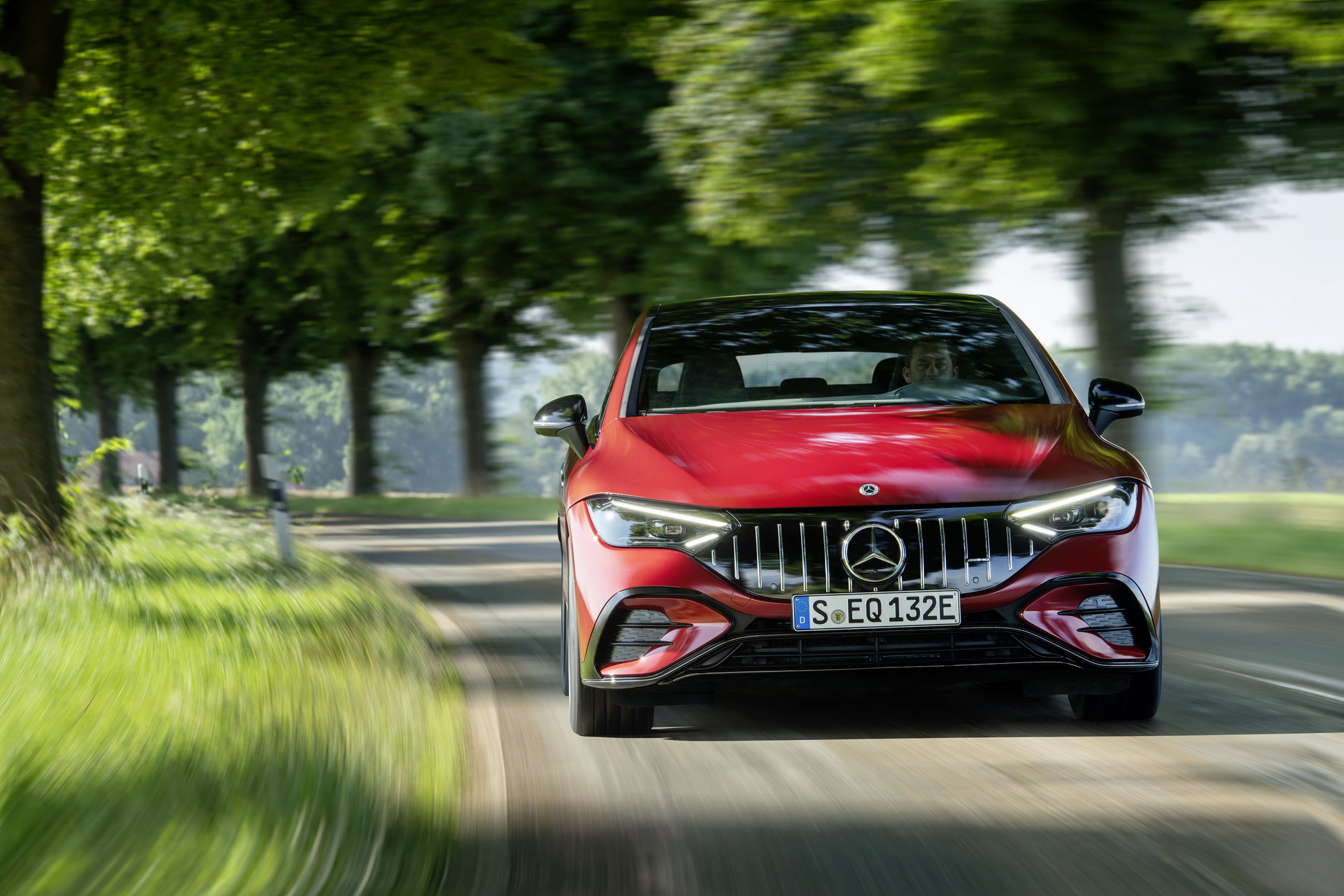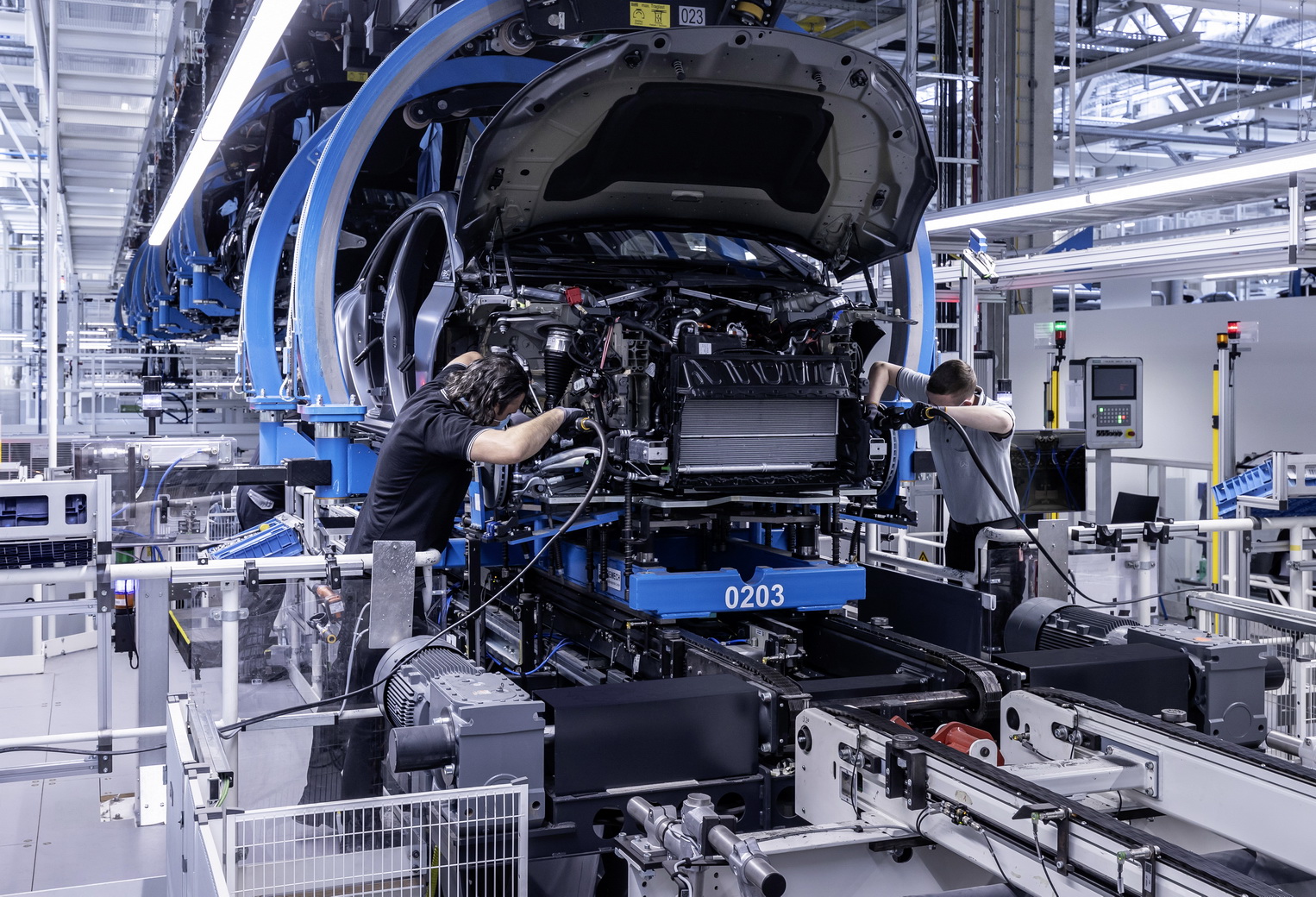Mercedes-Benz will operate factories that solely produce electric vehicles by the second half of the decade.
Like most legacy automakers, the German brand is embarking on a widespread electrification plan and will launch a plethora of electric vehicles over the coming years. Currently, it is building its EVs in factories alongside combustion-powered models but that will change.
“Building a whole new battery-electric vehicle factory takes time,” production chief Joerg Burzer told Reuters, noting the automaker is using existing plants for EVs. “We will certainly have some lines producing only electric vehicles in the next few years… we also see whole factories switching to electric – that is a topic for the second half of the decade.”
Read Also: 2023 Mercedes-AMG EQE Debuts In Two Flavors With Up To 677 HP
Mercedes-Benz sold a total of 2,054,962 vehicles throughout 2021 and of these, 2.3 per cent were EVs while 11 per cent were plug-in hybrids. The proportion of electric and hybrid sales is expected to rise significantly in the coming years and by 2025, Mercedes expects electric and hybrid vehicles to account for 50 per cent of its sales.
Speaking with Reuters, Burzer said that Mercedes-Benz currently transfers the batteries used for its EVs from its main plant in Sindelfingen to other plants in Germany and Hungary where they are installed in the vehicles. Moving forward, battery assembly and production could be brought nearer to car plants.
The next EV from Mercedes-Benz set to reach the hands of customers will be the EQE. Production will begin later this year at the automaker’s Bremen plant in Germany before expanding to factories in Beijing and Tuscaloosa.
“With the ramp-up of the EQE in Bremen and later in Beijing, we are coming into a segment where we can deliver at far higher volumes,” Burzer said.





